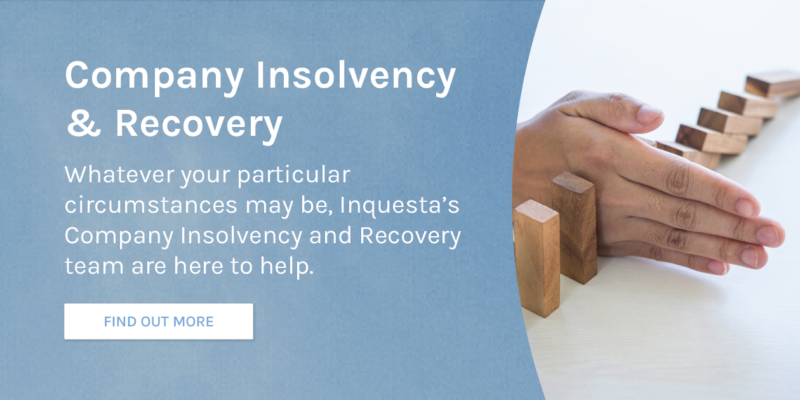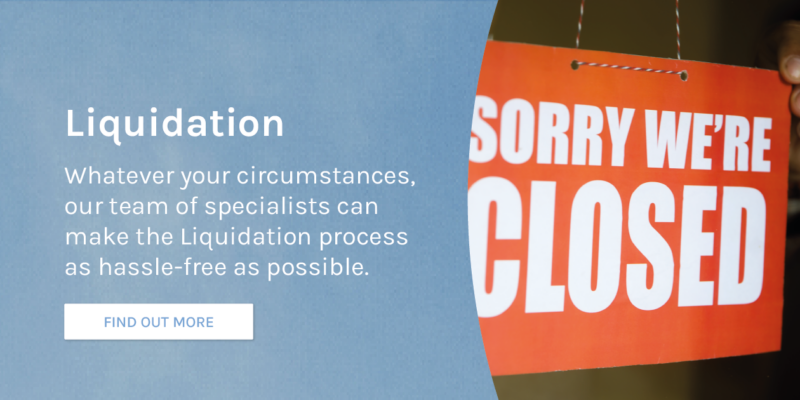Insolvency is an exceptionally challenging time for any business. The process is often filled with extreme uncertainty, difficult decisions, and a number of complex legal obligations. As company director, you’re expected to be knowledgeable on a vast number of the financial and operational facets of insolvency, as well as all of the relevant rules and regulations it is bound by.
One such regulation that often causes confusion in the process is TUPE. If you’ve read this last sentence and wondered what TUPE in insolvency requires, or how to navigate its intricacies without compromising either your employees’ rights or the firm’s best interests, you’re in the right place. We are on hand to help unravel the complexities of the regulation, providing you with actionable insights, considerations, and expert advice tailored specifically for directors facing the ongoing challenges of insolvency.
What Does TUPE Mean?
TUPE stands for the Transfer of Undertakings (Protection of Employment). It acts as a regulation to protect the rights and benefits of UK employees when their employment has changed hands. TUPE effectively ensures that, for relevant transfers, employees have the right to transfer to any new employer on the same terms of employment, and with all existing employment rights.
The primary objectives of TUPE are to:
- Guarantee Employee Retention
- Provide Information and Consultation
- Protect Against Unfair Dismissal
- Ensure Redundancy Rights are Retained
TUPE regulations are applicable to the majority of business transfers in the United Kingdom and aims to ensure that the employees of a business are not forgotten, ignored, or pushed aside during times of extreme change for the business. These team members should be treated with consistency and fairness during such turbulent transitions.
Tupe & Insolvency: How It Works
TUPE can still apply when a company is insolvent. Whether it actually applies to you or not depends on if you’ll be using the insolvency process to close down your business or are aiming to turn things around and start on the road to recovery. TUPE in insolvency can apply to the latter but not the former.
For further context, the two differing types of insolvency — and how TUPE may apply — are as follows:
Terminal Insolvency Proceedings
If, during the insolvency process, it becomes clear that the only outcome is for the company to be closed down or liquidated, then employees will not be covered by TUPE regulations.
This will remain true, in most cases, if the company is bought during the insolvency process. Once formal liquidation proceedings have begun, an incoming employer will not be expected to take on much in the way of TUPE regulations.
In this scenario, the following is true:
- Employment contracts will not be automatically transferred to the new employer
- Changes can be made to employment contracts
- Employees will be unable to claim unfair dismissal on grounds of their TUPE rights
The reason for this is as a means of incentivising a potential new employer to rescue an ailing business, potentially saving jobs in the process.
Non-Terminal Insolvency Proceedings
TUPE will apply if a business is going through a non-terminal insolvency process, such as a pre-pack administration, Company Voluntary Arrangement, or administrative receivership.
If a business is taken over as part of a non-terminal insolvency process, TUPE regulations will apply. However, the regulations will apply only in a limited format. This means that while some employee protections and transfer requirements remain, there is greater flexibility for the new employer in selecting the employees they want to take on and managing the associated liabilities.
The purpose of TUPE regulations in this context are to give incoming employers options when rescuing a struggling company, while still providing some level of protection for employers involved.
TUPE and Insolvency: Key Things to Consider For Directors
Directors of an insolvent company face a challenging task when dealing with situations involving TUPE in insolvency. By understanding their obligations, seeking professional advice, and maintaining consistent open communication with stakeholders, directors can navigate the complexities more effectively. While the process is challenging, with thorough and meticulous planning, directors can ensure compliance, protecting the interests of all the relevant parties involved.
Remaining compliant with TUPE in insolvency regulations throughout the process will require a keen understanding of what’s expected of you. Here are a few key things for a director of an insolvency company to keep in mind:
You Have an Obligation to Inform and Consult
The director of an insolvency company has a duty to inform and consult with employee representatives. This can be a union representative or a member of staff put forward for the role.
This meeting should revolve around the transfer of employment due to the company’s insolvency. Proper consultation is an essential part of the process, and directors should be certain that they provide all the information required regarding the insolvency and how it is expected to impact on employees of the firm.
As of July 2024, in order to ease administrative burdens, company’’s with less than 50 employees involved in a situation involving TUPE in insolvency, or businesses undertaking a transfer of fewer than 10 employees, will no longer need to arrange for employee representatives for TUPE consultations. The exception to this new rule is only if a representative has already been appointed.
Employee Rights Must Be Transferred Across
TUPE regulations ensure that employees’ contracts of employment will be transferred to the new employer (the company who has purchased the insolvent firm).
It is the responsibility of the current company director to make certain that all employees’ rights are transferred across ready for the transfer of ownership, even if the business is insolvent. Rights that are expected to be transferred include:
- Wages
- Bonuses
- Company benefits
- Holiday entitlements
You Need to Understand Your Redundancy Obligations
Insolvency will often result in some redundancies. As director, it falls to you to understand your obligations regarding firm redundancies. This will usually include considerations to consultation periods as well as severance packages.
The correct procedures must be followed at all times. Failure to do so can result in wrongful termination claims being raised against you.
Keep Lines of Communication Open
The director of an insolvent business is required to always maintain open and honest communication with any parties with vested interest, including:
- Employees
- Stakeholders
- Creditors
It’s vital that you keep everybody informed about your firm’s insolvency and the potential implications to them. Providing this key information can help all parties to better plan for the future and build additional trust during what is likely to be highly challenging times for all involved.
Seek Expert Assistance
Directors of insolvent companies should always look to seek professional advice from registered and experienced experts as soon as possible. These specialists can provide you tailored guidance to help navigate a situation involving TUPE in insolvency while ensuring total compliance throughout the process.
Is Your Company Insolvent? Our Team of Experts Are Here to Help
Navigating the intricacies of situations involving TUPE in insolvency can be highly daunting, especially for any directors trying to focus on managing the broader challenges that come with insolvency and administration. While TUPE regulations add an additional layer to an already highly complex, emotional, and tense situation, it’s crucial that you comply if you want to protect both your interest and those of your employees.
At Inquesta we understand better than anybody the myriad of challenges and difficulties that can arise as a result of insolvency and administration. Our focus is on guiding businesses through the process of navigating situations involving TUPE in insolvency effectively.
Our team of specialists are well-versed in all things company insolvency and recovery, and can provide you with the tailored and targeted advice and support you need. We’re here to help you better understand your obligations, manage the transition, and ensure complete compliance with all TUPE regulations.
By partnering with us, you can navigate all the complexities of scenarios involving TUPE in insolvency with greater confidence. We’ll work closely with you to develop a strategy that addresses your scenario, protects your best interests, and helps you to achieve the best outcome possible for your business and its stakeholders.
Don’t let the challenges overwhelm you. Contact our team of insolvency experts today to discuss how we can assist you in managing your firm’s insolvency effectively and efficiently. Navigate these difficult times with greater confidence and increased clarity with Inquesta.




